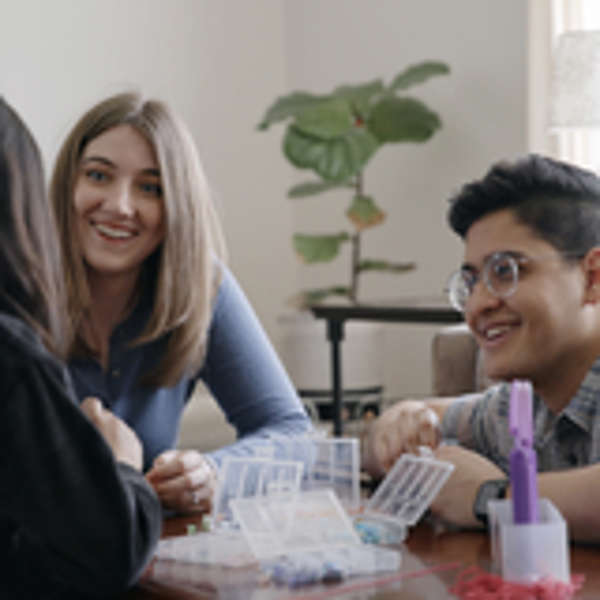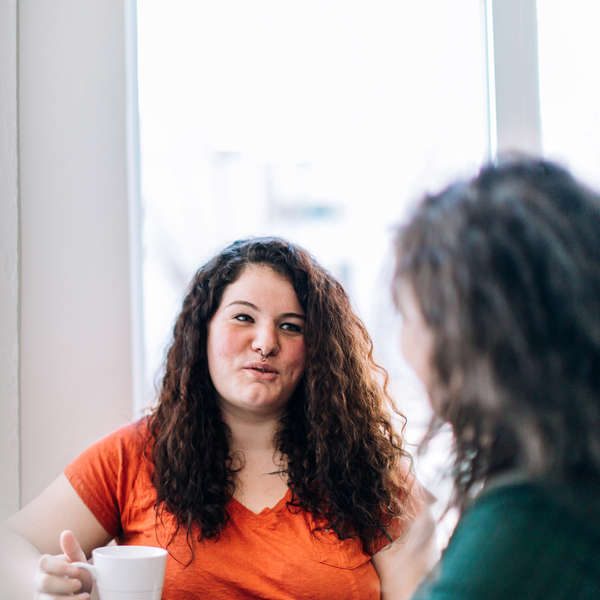What is kinship care?
There are many benefits of keeping families together in foster care.
Carol Lee, senior editor

Amy was 15 when she confided in a friend about years of sexual abuse she’d endured at home. Telling this secret upended her family, and she needed a safe place to heal.
“I had no clue what foster care was going to be like,” Amy said. “It’s scary not knowing where you’re going to be, wondering who’s going to be there to hold your hand. Finding out I’d be placed with my aunt and uncle was like being thrown a life preserver.”
According to Annie E. Casey Foundation data, more than 2.6 million children in the U.S. are in kinship care, being raised by a family member or close family friend when parents cannot safely provide care. Many of these living arrangements are informal, without social services or court systems involved.
In 2021, nearly 134,000 children and teens like Amy were formally in foster care with a family member. This was true for 35% of all U.S. children in foster care. Kinship care research points to better overall outcomes when children are placed with family members and has long been the preferred first placement option when children enter foster care. Today, state child welfare officials are looking at ways to move that preference into practice more consistently.
Benefits of kinship care
Kinship care is never easy and has its own set of challenges—from internal family dynamics to the often-unexpected nature of the ask to step in to parent children. Although it requires agencies to provide intentional, thoughtful support for caregivers, prioritizing kinship care makes sense for many reasons.
Felt safety. When children stay with people they know—in a home where they’re likely to experience shared values, culture, and family history—they experience psychological safety. Their minds and bodies can relax, knowing they’re in a safe place. After the disruption and uncertainty of being removed from their home, they don’t face added fear and anxiety about living with a stranger. This sense of felt safety is essential to a child’s mental health and well-being.
Familiar community. Family members or close family friends often live in the same community as the child’s family. This means children are more likely to stay within a familiar racial, cultural, or ethnic community, and they don’t have the added stress of changing schools mid-year. Trusted teachers, friends, and cultural mentors are an important part of a child’s support system.
Family connections. Family members often have deep empathy and compassion for the child’s parents and are likely to maintain the child’s connection with parents while in care. Increased connection between parents and children, when safe, increases the likelihood of reunification. Family members also are likely to encourage connections with extended family—keeping children rooted in family cultures, customs, and traditions, strengthening the child’s sense of belonging.
Keeping siblings together. Family members are more likely to accept placement of siblings. A 2013 study in Illinois showed that 80% of children with one or two siblings were placed together in kinship care, compared to 66.9% for children placed in traditional foster care. For sibling groups of four or more, 53.5% were placed together in kinship care compared to 1.8% in traditional foster care. Siblings provide a sense of understanding and support as they often experience the same hardships together. They can also help each other heal from those shared experiences.
Long-term stability. Kinship placements tend to be more stable, with less “bouncing around” in multiple placements and less reentry into foster care. And when children can’t return to their parents’ care, nearly a third of children adopted from foster care are adopted by family members. Another 12% exit foster care in a guardianship arrangement with kin.
Amy's story of healing
“When I came to my aunt and uncle’s house, I was pretty broken,” Amy said. “They talked with my social worker to make sure I had all the tools I needed. We did a lot of counseling. My uncle, especially, was a rock when I needed him. If it weren’t for him, I wouldn’t be able to trust men. My aunt and uncle did everything to make sure that I would be a strong, successful survivor—that helped a lot.”
After nearly a year in kinship care, Amy reunified with her mom and brothers in a new home. Today, Amy is a married mother of daughters, and she feels especially close to her family who were there for her at vulnerable time in her life.
“Family is the backbone to everything,” she says. “It’s a different kind of trust. When you go through something like this, you need people who make sure you know you’re not going to be stuck as a scared 15-year-old your whole life. You can grow. You’re going to make it through this. And it’s moving to know these people who changed their whole lives for you are going to be there for you for the rest of your life.”
Additional resources
- Coping with the Unique Challenges of Kinship Care
- Creating a Family
- Generations United
- Grandfamilies.org



